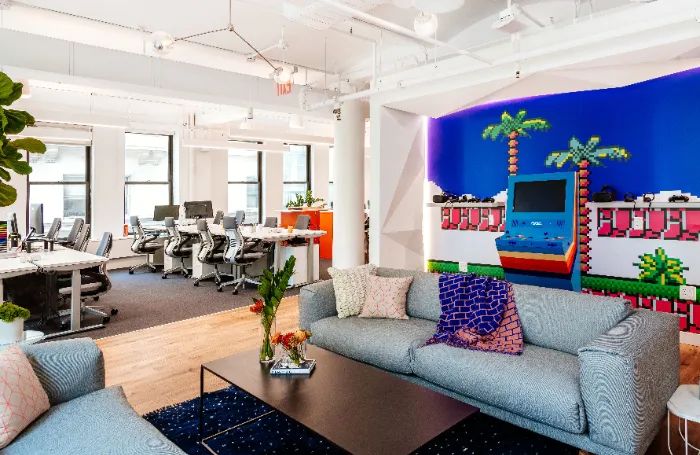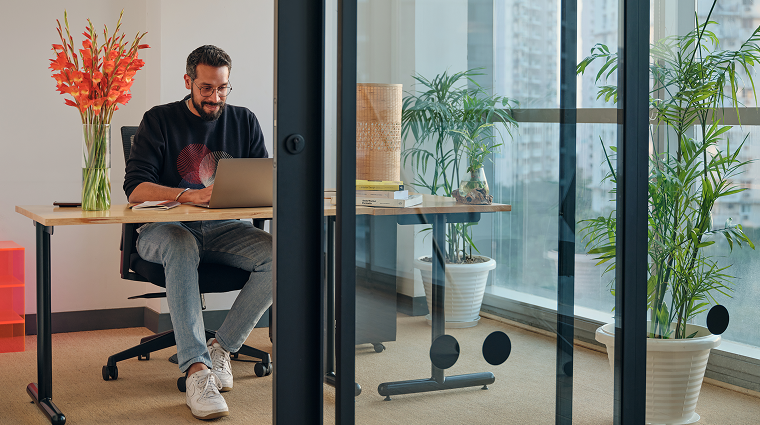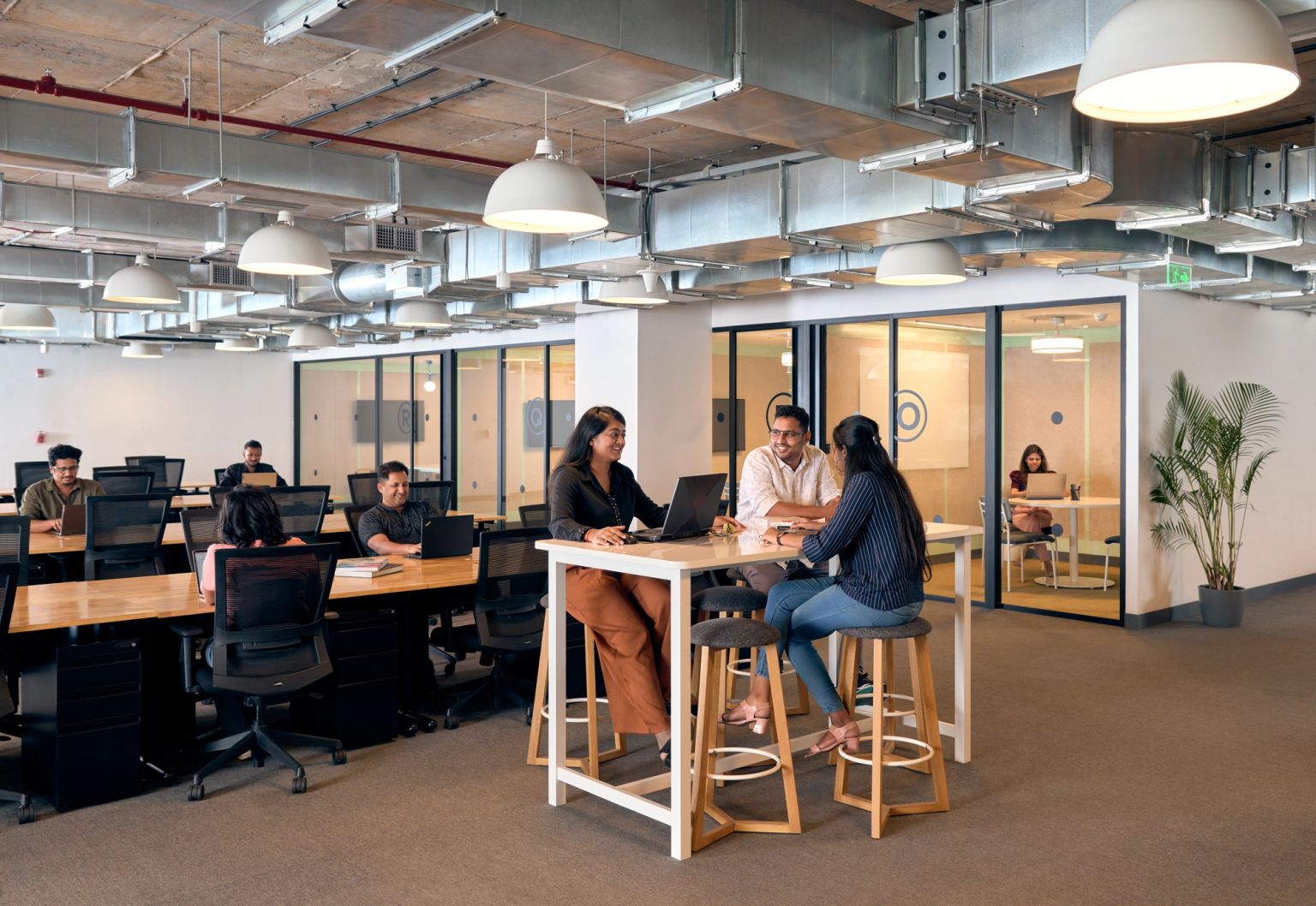CULTURE & COMMUNITY
Building a Covid safe yet engaging workspace

During the initial phase of Covid-19, most firms were able to rethink their strategies and adapt quickly to meet the basic requirements of safety, stability, and security for all employees and business operations. However, as businesses enter the next stage and resume work, those requirements are changing, necessitating a more complex strategy. Companies are now looking at reimagining employee and member experiences in ways that respect individual preferences, talents, capacities, evolving needs, and other factors—while also adjusting to changing conditions during the return period. This reintegration gives organisations a strong incentive to tailor actions to create shared feelings of well-being and cohesion across the workforce. As businesses prepare for recovery, below are a few ways in which the organizations can look at building a Covid safe yet engaging workplace.
Newer Approach towards Workplace and Safety
The workplace we were used to going pre-Covid will require a fresh, new approach that fosters newer methods of engagement while preserving employees’ mental and physical safety. People will continue to prefer locations where they can gather, engage and create connections taking all safety measures into consideration. As much as we want private spaces to seek isolation, we also require public spaces to bring us together. Aside from fostering connections and building engagement, offices are important for a variety of other reasons and thus, a workplace that promotes a prospective work culture will be opted by both individuals and businesses to reflect their beliefs and goals. There lies the opportunity to bring a sense of community and sustainable growth for businesses witnessing the impact on mental health, collaboration, performance management and most importantly culture. A workplace will also need to absorb the innovations in physical space design allowing peers to represent their professional identities to their best. While virtual work is functional — for the time being — many of us are still operating within cultures, conventions, relationships, and practises that existed before the epidemic. If we want to modify or adjust any of those elements in the future, we will need to be physically present. After all, we can’t completely alter a culture over Zoom.
Implementing strategic changes for the evolving needs of the employees
Keeping in mind the short, medium and long-term implications of Covid-19 on the sector as a whole, companies need to make strategic changes by reviewing member feedback and their concerns. Entailing the same, the workspace needs to engage with industry partners across health and safety, cleaning, construction, and design to provide enhancements and develop a workable plan to safeguard its members and employees. Professional needs have evolved as a result of the pandemic, and people today are looking for workspaces with constructive options. To meet these evolving needs, companies must ensure hosting activities like virtual events, campaigns, further investing in professional development through virtual workshops that allow professionals to experience the community, collaboration, and work culture of a safe workspace. Creating a community at work provides a foundation for the organisation to develop its own culture that is distinct and distinguishes it. The way individuals connect, participate, and achieve goals establishes their own standards, which helps employees feel involved and unified. The novelty of each company helps members who work there feel a part of a community that cannot be readily imitated. In this crucial time of need, businesses require agility, customization and efficiency for them to get back and continue on their growth trajectory.
Offer flexible and customizable solutions
While companies have demonstrated that working from home is feasible, most do not aim to be completely remote indefinitely, and the future is all about flexibility. Amid the pandemic, flexibility should be the core competency be it in pricing, occupancy models, locations or scalability. The assigning of hot desks, dedicated desks, and private offices have already found popularity among enterprises and small businesses. These new product offerings offer flexibility to businesses and entrepreneurs to make decisions for their businesses to thrive without the burden of fixed asset investments. Moreover, with health and safety remaining a top concern in the new normal, flexible workspaces outfitted with the necessary safety measures will be seen favourably.
Ensuring a sense of community
To make members and staff feel connected, companies must focus on communication and continual engagement through webinars, online sessions, and engaging digital initiatives, and keep this large community connected. Additionally, after prolonged work from home, there has been an impact on mental health, collaboration, performance management and most importantly culture. Report by Microsoft points out that more than 3 in 4 Indian workers (74 per cent) are keen on flexible remote work options. 57 per cent employees feel overworked as digital intensity increases in the country, and 73 per cent of those surveyed said they are craving more in-person time with their teams. Therefore, maintaining a culture of care towards members and employees, while assisting them in achieving a work-life balance is crucial to overall development.
As we move forward, we need to recognize that the future of work is truly flexible; organizations have an opportunity to enhance employee experience during this return phase by providing a nuanced approach that considers workforce variations. Keeping these advancements in mind, Covid-19 safety precautions will need to be included in workplace safety. Given the continuously evolving landscape, organizations should utilise a hybrid return to workplaces as a chance to reset their approach.
Related Blogs:

CULTURE & COMMUNITY
Many professionals now deal with stress regularly, with tight deadlines and long work hours in a stressful workplace. In such a demanding and fast-paced work culture, mindfulness can be an effective strategy.

CULTURE & COMMUNITY
A buddy system involves assigning a new employee a coworker buddy. The buddy, who is an experienced worker, guides the new employee for the first weeks or months of work.

